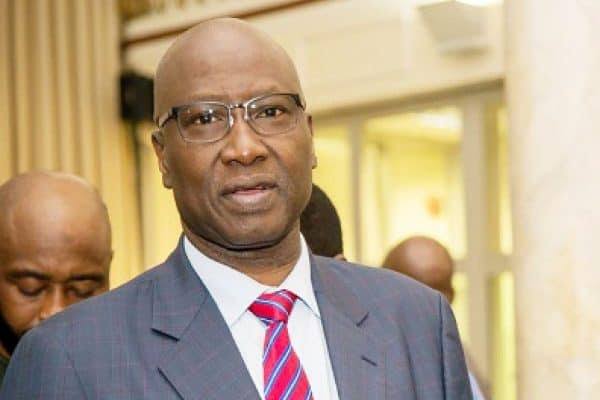The year 1982 began with a revolutionary upheaval in Ghana: a group of young and radical military officers—some retired, others still in service—appeared to have seized power! It soon became clear, however, that what took place—or was taking place—in Accra was not a classical military coup d’etat, but a popular armed uprising led by a loose assemblage of Leftist groups and individuals, military and civilian. Appeals went out from Accra for revolutionary solidarity.
Favourable responses came from across Africa—including Nigeria—and beyond. In particular, at least one response came from Calabar. My spouse and I had just been reinstated as lecturers in the University of Calabar (UNICAL) after a forced absence of about three years. The Calabar Group of Socialists was vibrant. So was the Democratic Action Committee (DACOM), also based in Calabar. The Left in Calabar was in the strongest period of its post-Civil War history. Meetings and consultations were held and I left for Accra, Ghana. I entered the country as a “journalist”.
Late in the evening of the day of arrival, I went to the restaurant. There I saw only two male guests, sitting together, talking animatedly. Ostensibly, they were waiting for their orders. One was black, the other was white. The black man I knew very well: he was Comrade Eskor Toyo who had left Calabar a few days before me. I thought the other person, the “whiteman”, was an enterprising or curious journalist. On enquiry, he turned out to be the famous Samir Amin whom I had encountered, through his works, about seven years earlier. Since then, those works had contributed significantly to the resolution of some of the critical questions that confronted me as a young revolutionary socialist and Marxist. I was elated, and with this raised my preliminary assessment of the potentials of this latest revolutionary rising in post-colonial Africa.
I was elated because attracted to what was happening in Ghana were several serious revolutionaries, including Eskor Toyo and Samir Amin, who were long-standing revolutionary Marxist intellectuals and well-respected African economists and political economists. Eskor Toyo, then 53, was a Nigerian; Samir Amin then 51, was of Egyptian and French parentage. Eskor Toyo had also been involved, for at least three decades, in grassroots workers’ and popular education, mobilization and organization as well as in the labour movement. Here they were, sitting together and discussing an ongoing revolutionary rising on the African continent—not too far from where the event was being coordinated. Because of the nature of my own presence in Ghana, I could not make any contact at that point. I withdrew from the restaurant and initiated an alternative arrangement. Eskor Toyo died on Monday, December 7, 2015, aged 86. Samir Amin died on Sunday, August 12, 2018, also aged 86.
I had earlier said that Samir Amin, through his books, essays and articles, contributed significantly to the resolution of some of the questions that confronted me as a young Marxist and socialist. That critical period of my development can be taken roughly as the second half of the 1970s, that is, when I was between 29 and 34 years old. I shall pick out two of the questions and build what I have to say around only one of Samir Amin’s “early books”. That book is Imperialism and Unequal Development. And the two questions are: What Marxism is (in a coherent and accessible summary) and The Lessons of Cambodia.
Lenin had written in his Three Sources and three component parts of Marxism (1913) that there were three “sources” and (hence?) three “component parts” of Marxism. These three “sources-components” he gave as political economy, philosophy and socialism. But having emerged, Marxism, in the words of Lenin, became “integral”, “harmonious”, “irreconcilable with any form of superstition, reaction or defence of bourgeois reaction” and “omnipotent because it is true”. This was the language of a revolutionary combatant who had no business being in the field, let alone leading the struggle unless he or she was “certain” and could instil this “certainty” in the fighting forces.
In that critical period, that is, about 40 years ago, I could make pronouncements on Marx’s and Marxist positions on political economy (or rather, critique of political economy), philosophy and socialism. I could give lectures on beliefs and actions that were not only incompatible, but also irreconcilable, with Marxism. But having apprehended what Marxism was not, what, in precise terms, was it? In Imperialism and Unequal Development, published by the Monthly Review Press in 1977, but getting to me in January 1979, Samir Amin gave me, not an answer, but a direction in which to seek an answer: “The critique of economism has allowed the rediscovery of the unity of Marxism, which is neither an economic theory, a sociological theory, nor a philosophy, but the social science of revolutionary socialist praxis”.
READ ALSO: National security, interest supreme to Rule of Law – Buhari
Samir Amin wrote this at the age of 45, about 20 years after his doctoral dissertation on Political Economy. The passage is in the Introduction to the book which itself was a collection of Amin’s essays in response to reviews of two of his earlier books: Accumulation on a World Scale (1974) and Unequal Development (1976).
In the year that I received Imperialism and Unequal Development, I started drafting my first collection of essays titled The Tragedy of the Nigerian Socialist Movement. That is also the title of the main essay in the collection. It was an angry review of the movement’s “unseriousness” in the politics of Murtala Mohammed/Olusegun Obasanjo transition to civil rule (1975-1979). The collection also carries a two-page review of what was happening in Cambodia. I asked: How did the heroes of 1975 become “mass murderers” and “villains” by 1978? Why was the condemnation of the Khmer Rouge revolutionaries (whose “face” was Pol Pot) global and total: From East to West (except China); from North to South, from capitalists to socialists and communists, and cutting across global ideological and political divides—at the height of the Cold War? What were the Cambodian Khmer Rouge revolutionaries trying to do? What type of society were they trying to build? What were the sources of their grave errors?
I could not get satisfactory answers to these questions until I read Samir Amin’s The Lessons of Cambodia, the eighth essay in Imperialism and Unequal Development. His analysis, which was published in the second year of the revolutionary regime, rested heavily on his critique of imperialism and economism. Now, that the regime was fighting imperialism everyone knew. But that it was also fighting economism was an entirely new insight for me in 1978/79. In The Lessons of Cambodia, Samir Amin severely criticized the economism of “Stalinism” and other Soviet-type transitions to socialism.
Beyond this, Samir Amin also criticized “Trotskyism”, a frontline enemy of “Stalinism”, for not being able to transcend the problematic of economism which a college dictionary defines as a “theory or viewpoint that attaches decisive or principal importance to economic goals or interests”, thereby devaluing other factors of revolutionary transformation such as culture, de-alienation, equality, and political consciousness. One particular element of economism which came under Amin’s hammer was popularly expressed as the need for socialist transitions “to aim at catching up with the West”—a notion that he classified under “vulgar Marxism”.
With Samir Amin’s analysis, I immediately saw the sources of Khmer Rouge’s monumental difficulties and tragic errors of voluntarism. I could then also explain the equally tragic global convergence of opposition which Khmer Rouge’s attempted transition to socialism through the rejection of the Soviet road of “catching up”, attracted.
I saluted Samir Amin. Thereafter, I have saluted him several times—the last time being in my article of December 1, 2011, entitled Time to recall, and to honour. Now, the man is gone. Who replaces Samir Amin?
Madunagu, mathematician and journalist, writes from Calabar, Cross River State, Nigeria.











